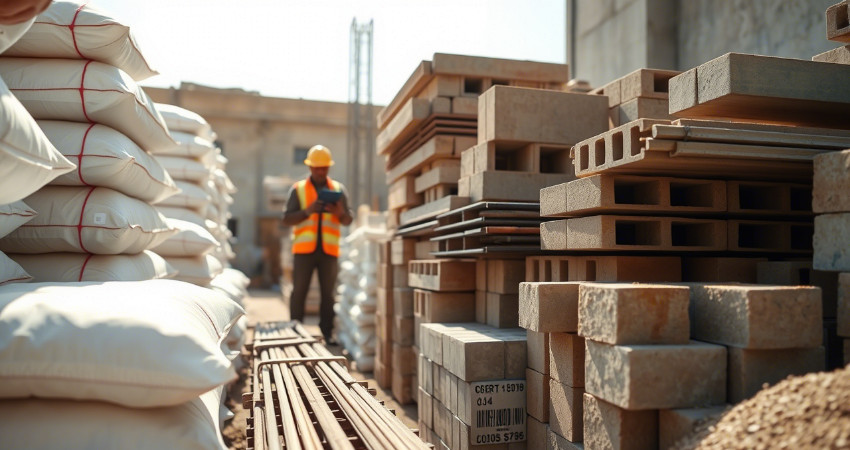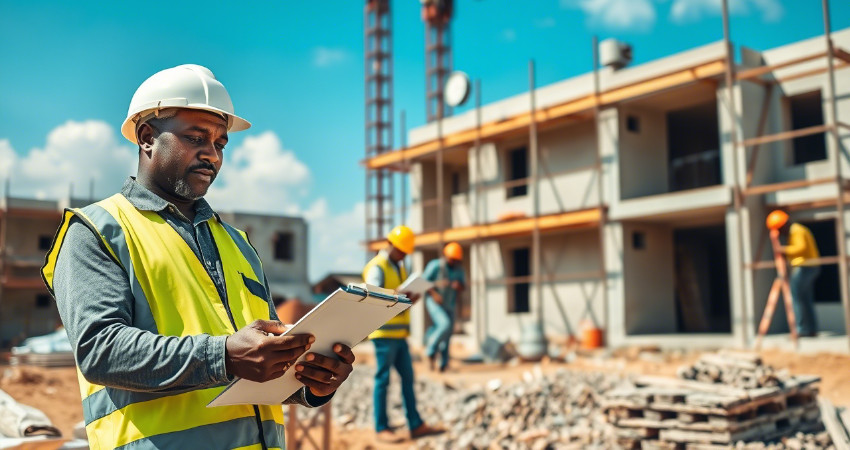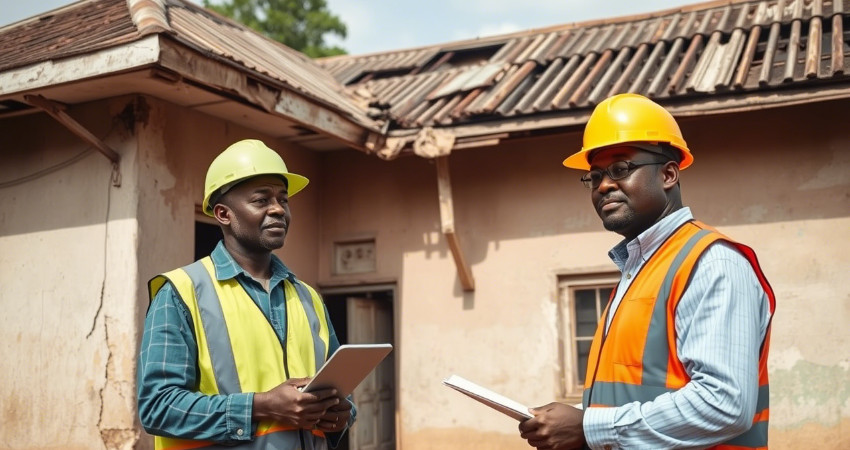
What Makes Construction Materials “High Quality”?
When you build, the materials you choose matter. They affect how long your structure lasts, how safe it is, and how much you’ll spend on repairs later.
But how can you tell if construction materials are actually high quality?
Let’s break it down.
1. Certified by Recognized Standards
Good materials meet known industry standards.
- In Kenya, look for the KEBS mark (Kenya Bureau of Standards).
- For steel, check the grade—Y12, Y16, etc.—and ask if it's tested.
- For cement, ensure the packaging shows a valid KEBS number and manufacturing date.
Visit kebs.org to confirm if a brand is registered.
Avoid unmarked, untraceable products. If it’s not certified, it’s not worth the risk.
2. Matches the Required Specification
There’s no one-size-fits-all.
- You need different steel thicknesses for columns, beams, or slabs.
- Not all sand is suitable for concrete—some contains too much silt.
- Walling blocks vary in strength; use stronger ones for load-bearing walls.
Ask your engineer for the exact specs before purchase.
For example, river sand is preferred for plastering, while coarse sand works best for concrete. Mixing the two without knowing can weaken the outcome.
A good supplier won’t just sell—they’ll ask what you’re building and suggest the right option.
3. Clean, Consistent, and Undamaged
Look at the material before you buy or offload it.
- Cement should be dry and lump-free.
- Steel bars should be rust-free, straight, and clearly labeled.
- Timber should be straight, free of cracks, and well-seasoned (not fresh-cut).
- Roofing sheets should have uniform thickness and paint finish.
Inconsistent materials are a sign of poor production or storage. Even paint quality can vary between batches—always buy enough from one lot to maintain color consistency.
4. Performs Well Under Testing
You don’t need a lab to check everything, but some tests help.
- Rub a bit of cement between your fingers—quality cement feels smooth, not sandy.
- Drop a block from a short height—it shouldn’t crumble easily.
- Tap steel bars—they should produce a clean metallic sound, not a dull thud.
For large projects, ask for material test certificates from the supplier.
Some developers in Kenya now insist on third-party testing for key deliveries like concrete or steel. It’s cheaper to test than rebuild.
5. Comes from a Trusted Supplier
Where you buy matters.
- Buy from licensed, established suppliers—not from trucks on the roadside.
- Check online reviews or ask for referrals from other builders.
- Ask if the supplier offers receipts and delivery notes. This helps in case of disputes.
If the price looks too good to be true, ask yourself why.
6. Stored and Delivered Properly
Even the best materials can fail if stored badly.
- Cement should be kept on raised pallets, away from moisture.
- Steel should not sit in direct contact with soil or rain.
- Paint and adhesives should be sealed and stored away from heat.
Ask to inspect materials on arrival. Don’t sign off on poor condition goods.
7. Lasts Over Time Without Early Failure
High-quality materials stay stable over years, not weeks.
- Paint should not peel within a few months.
- Tiles should not crack easily.
- Roofing sheets should not fade or rust shortly after installation.
If something breaks down quickly without heavy use, it was either of poor quality or was wrongly applied.
Keep a record of when each material was used. That way, if problems appear, you can trace them back and avoid repeating the same mistake.
Ask Yourself Before Buying
- Is this material certified by a known body?
- Does it match my engineer’s or architect’s specifications?
- Can I return or exchange it if there’s an issue?
- Has it been stored correctly before delivery?
- Am I buying from someone I can trust?
The answers can save your project from costly repairs and delays.
What you build depends on what you use. Materials don’t just hold the structure—they define how well it performs, how long it lasts, and how much peace of mind it gives you later.
If you're not sure where to get quality materials in Kenya, Midfix supplies trusted brands with verified specs and clear documentation. Ask before you build. Quality starts at delivery.






